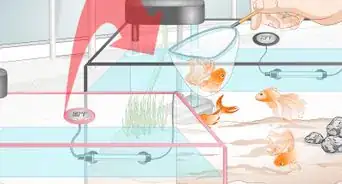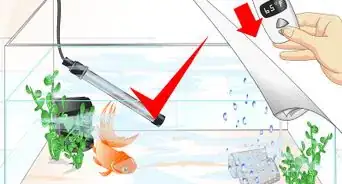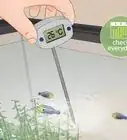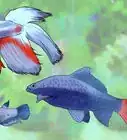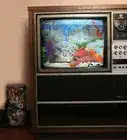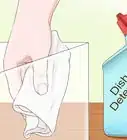This article was co-authored by wikiHow Staff. Our trained team of editors and researchers validate articles for accuracy and comprehensiveness. wikiHow's Content Management Team carefully monitors the work from our editorial staff to ensure that each article is backed by trusted research and meets our high quality standards.
This article has been viewed 296,157 times.
Learn more...
When you go away on vacation, your fish still need to be cared for. There are various things you can do to ensure that they stay happy and healthy while you're gone, depending on the amount of time you're going to be away.
Steps
Preparing for leaving
-
1Plan for the length of your absence. If you are gone a couple of days, most fish should be fine without food. If you are on a month long trip, your fish will require food.
-
2Understand the risks. Whenever you leave your fish to travel, there will always be risks. If you have rare and expensive fish, always make sure that you have the proper care plan laid out, and make sure it is as foolproof a plan as possible.Advertisement
-
3Plan according to the type of fish you have. Different fish have different dietary needs. Be sure to know exactly what kinds of fish you have.[1]
- Carnivores require live food and/or carnivore pellets.
- Omnivores: A large amount of fish fall into this category. You would think that you can just use feeder blocks, but really, feeder blocks are so dangerous. Leaving the block sitting in the water for not even a full day will raise the ammonia level and if it gets too high it will make your fish sick and potentially kill. Also, you should never give fish a bunch of food and expect the fish to stop eating when he’s no longer hungry. Some fish, like betta fish, do not have the ability to feel hunger or fullness, so they will just keep eating and eating until they blow up like a balloon and potentially get sick and die. Betta fish can go up to a week without going into starvation mode. Another con, is that feeder blocks are horrible quality and don’t have the proper ingredients for your fish. It is best to have someone feed your fish for you while you are away, or use an automatic feeder.
- Herbivores: These are fish with a vegetable and plant diet. It would be best to get someone to come over and feed your fish.
Choosing the care arrangements
-
1Know your options. There are several methods of feeding fish during your absence. The length of your vacation will impact your choice but it is always a good idea to have someone check now and then, especially if the electricity goes off in your area (which only a neighbor will know about).
- Get an automatic feeder and fill the compartments with the correct food for your fish. The feeder will automatically release food into the water according to a schedule that you program into it. This method is only suitable for fish that take pellet and flake like foods, as it will not hold bloodworms and other live foods. Freeze-dried bloodworms are available.[2]
- Put feeder fish of varied sizes in the tank. It is key to put different sized feeder fish into the tank as the predator will eat some first, and some later, according to size. Do not put live worms into the tank as they will foul up your water.
- Have someone come over and feed your fish. This is the best method, especially if your fish are picky eaters, but make sure that they have enough time to feed your fish, and know how, when and what to feed them.
-
2Combine these methods to care for a variety of fish. It is possible to satisfy two of the groups, as omnivores can eat carnivore and herbivore's food.
- Still, if you have different groups of fish diets in your tank, all with their own special food, it would be best to get someone who can spend enough time to make sure each group is satisfied.
-
3Cover your tank securely. Fish like Bichirs and spiny eels tend to crawl out of holes in your tank, so make sure there are no escape points where the fish could get out. If you have a pond and need to prepare it for the winter, now would not be the time to leave.
Having someone attend to your fish
-
1Get somebody to take care of your fish. Ask around. Sometimes pet shops have services where you pay them to come over and feed your fish.
- Unknown people have full access to your house. This makes it important that the person you choose is properly vetted or is known to you. If you do not feel comfortable with strangers in your house, ask a family member or a friend. Alternatively, a pet sitting service whose clients have been police verified can be an alternative, although more costly.
-
2Talk to your fish-sitter about your fish before you leave. Tell them everything they need to know, especially about how much to feed, and also leave a written instruction sheet for their reference. If you can't find anyone at all to take care of your fish, it would be best not to leave. If you do, you are taking extreme risks, and it is likely your fish won't survive if you will be gone for a while.
Ensuring water health
-
1Keep the fish tank clean. You really don't need to worry about this too much if you won’t be gone for long. Before you go on vacation, do a water change within the week before you leave.[3] Make sure that if you have someone coming over to feed your fish they know how much to feed, and won't pollute your water. Clean your tank again soon after you return.
-
2Test your water when you come back. Hopefully, nothing went wrong while you were gone, but check for any spikes in ammonia, nitrite, or nitrate. You may have to perform large water changes until your water is back to normal. If you will be gone for a week or more, it is best to find someone who will do a water change(s) for you. [4]
Community Q&A
Did you know you can get answers researched by wikiHow Staff?
Unlock staff-researched answers by supporting wikiHow
-
QuestionShould I leave the tank light on while I’m on vacation?
 wikiHow Staff EditorThis answer was written by one of our trained team of researchers who validated it for accuracy and comprehensiveness.
wikiHow Staff EditorThis answer was written by one of our trained team of researchers who validated it for accuracy and comprehensiveness.
Staff Answer wikiHow Staff EditorStaff Answer
wikiHow Staff EditorStaff Answer -
QuestionHow long can I go without feeding my fish?
 wikiHow Staff EditorThis answer was written by one of our trained team of researchers who validated it for accuracy and comprehensiveness.
wikiHow Staff EditorThis answer was written by one of our trained team of researchers who validated it for accuracy and comprehensiveness.
Staff Answer wikiHow Staff EditorStaff Answer
wikiHow Staff EditorStaff Answer -
QuestionHow can I help a dying fish?
 wikiHow Staff EditorThis answer was written by one of our trained team of researchers who validated it for accuracy and comprehensiveness.
wikiHow Staff EditorThis answer was written by one of our trained team of researchers who validated it for accuracy and comprehensiveness.
Staff Answer wikiHow Staff EditorStaff Answer
wikiHow Staff EditorStaff Answer
Warnings
- If you are going to get someone to come over and look after your fish, make sure you trust the 100% before giving them your house keys. A few dead fish is better than a sacked house.⧼thumbs_response⧽
- Remember: The longer your trip, the more dangerous it could be to your fish. Fish-keepers with expensive and picky fish should not leave for more than a week. Two weeks at maximum.⧼thumbs_response⧽
References
About This Article
The best way to keep your fish healthy when you’re on vacation depends on what kind of fish you have and how long you’ll be gone. If you have low-maintenance fish and you’re only going to be away for a few days, you may be able to use an automatic feeder to release food on a schedule. However, if you have fish with complicated needs or a variety of different diets, then asking someone to come by and feed them for you regularly might be a better bet. However you choose to handle the feeding, it’s a good idea to clean your fish tank and do a water change before you leave, then clean it again shortly after you get back. Keep the tank tightly covered so that your fish can’t jump or wiggle out of the tank, especially if nobody is coming by regularly to check on them. For more advice from our Veterinary reviewer, including how to provide your fish with live plants and feeder fish while you’re gone, keep reading.
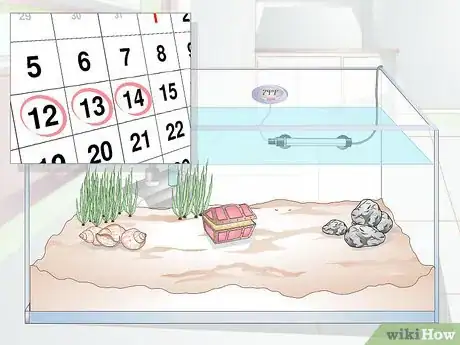
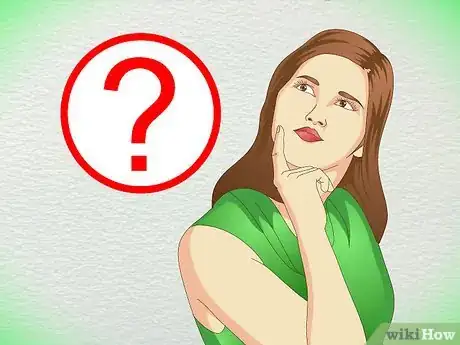
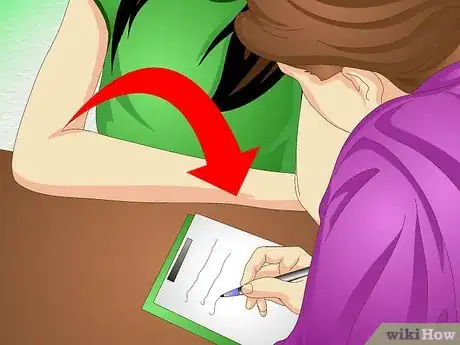
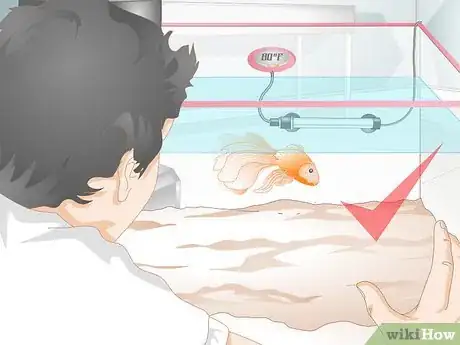
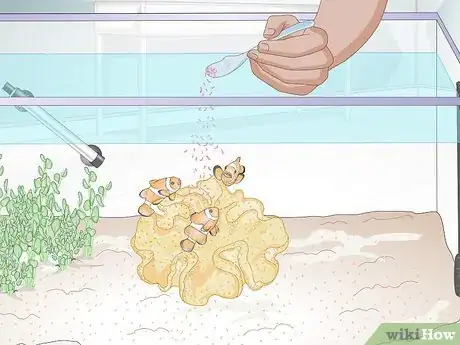

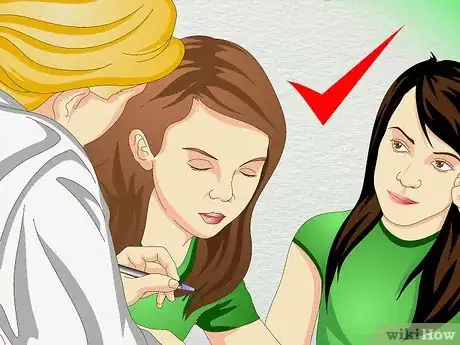
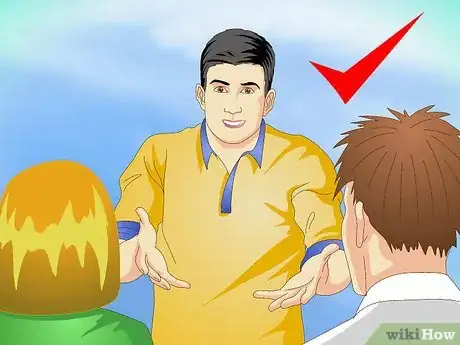
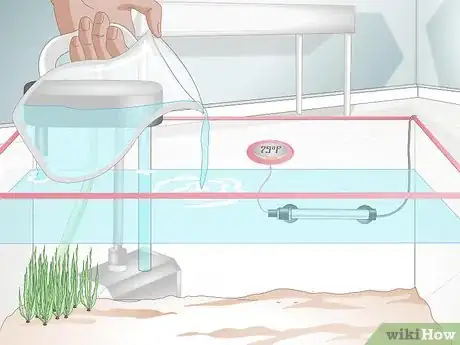
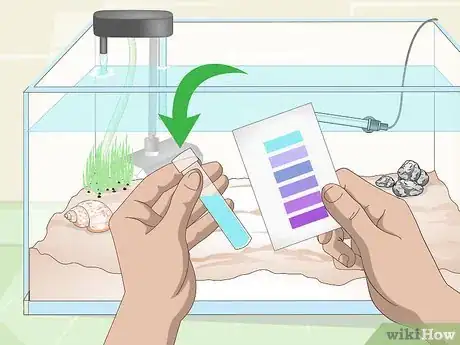
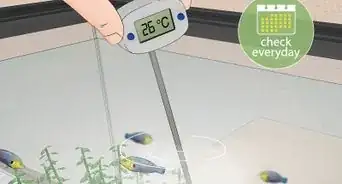
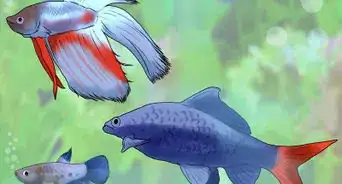
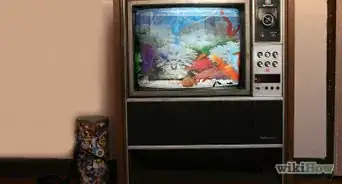
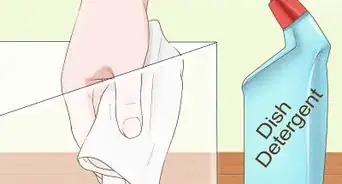
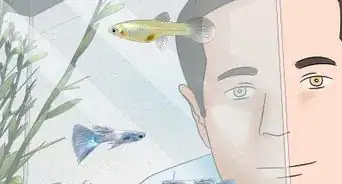
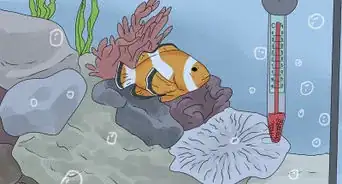
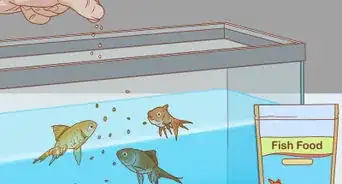
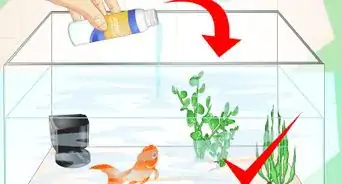
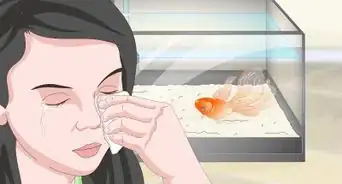
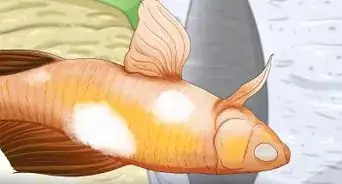
-Step-16.webp)

